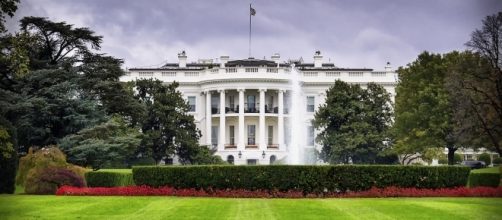The 9th District Court of Appeals has rejected each of the Trump Administration claims in detail and has upheld the Temporary Restraining Order (TRO) which lets people from the 7 Muslim countries enter the US as long as they have work permits, are permanent residents, or hold valid Visas (which take an average of 18 months investigation to obtain. Here is a look at the 29 page ruling in some detail. Pointedly, The Court found that the government had presented no evidence that the pause in implementation would pose any increased danger or that anyone from those countries banned had ever harmed an American in a domestic terrorist attack.
Appellate Jurisdiction
The States began their challenge of the Government’s position by claiming the court had no jurisdiction to rule on a TRO.
While that is generally true because the TRO should be challenged directly at a hearing before the initial judge who issued it, The Court found that the TRO would almost certainly be in effect longer than 14 days, making it effectively a Preliminary Injunction which is reviewable by The Court. The only ruling against the State's case was made moot by their denial of Government appeal.
Standing
The question of whether the person in court has a lawful reason to bring an action is called standing. For example, I can’t sue someone because my neighbour was injured, only if I was injured.
The Court ruled that Article II, Section 2 of The Constitution shows that courts can consider “cases and controversies” and the question is whether the plaintiff (Washington State) has a sufficiently personal stake in the outcome.” They must also have “Suffered a concrete injury … either actual or imminent.”
The State of Washington contended that the ban caused actual damages to the State Universities - cost of replacing scholars banned, loss of students, cost of obtaining visas, etc.
as well as loss or research abilities, collaboration, and employees and student’s loss of contact with families.
Earlier rulings found that schools can assert the rights of students.
Was the Trump order Reviewable
The DoJ argued that the courts not only owed substantial deference to President Trump's orders, but they were not reviewable at all even if they violated the constitution. The Court found there was no precedent for that and the government hadn’t provided any. Also, the Supreme Court had often rejected this idea.
The government cited the Mandell Law about reviewability, but The Court pointed out that the DoJ omitted parts of the law that contradicted their position and that Federal courts routinely review immigration-related laws and actions by the Executive and Legislative branches.
The three judges concluded that courts owe considerable deference to the President on these matters, but they nevertheless can review their legality.
Legal Standing
The Court found a stay is an exercise of judicial discretion and the Government failed to show likely hood of success in their challenge to the original TRO, but that the State raises serious concerns about religious discrimination inherent in Trump's executive order.
Due Process
The Fifth Amendment to The Constitution says no person can be denied a court hearing on a legal action and The Court found the Executive Order ban has no provision for due process.
The government argued that the opinion of the White House Council altered the treatment of those seeking re-entry, those who were permanent residents, and those who work permits, so there was no one who had standing to apply for due process but The Court pointed out this was just one lawyer’s opinion and wasn’t binding on any of the relevant agencies - also that it could be changed.
The Judges also found the ban contravenes Federal laws on considering admission of refugees.
The Court also referred to president Trump’s repeated reference to a Muslim ban and that the government had failed to demonstrate any irreparable injury which would be caused by delaying the ban.
SEE YOU IN COURT, THE SECURITY OF OUR NATION IS AT STAKE!
— Donald J. Trump (@realDonaldTrump) February 9, 2017

